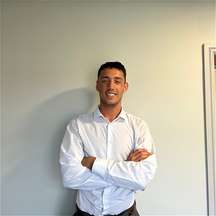
Having undertaken a degree in nuclear engineering, I came to the end of my course knowing that I wanted to pursue a job in the nuclear sector, however, I was unsure of what specific career path I wanted to follow.
The Nuclear Graduates programme stood out to me because of the unique opportunity it offered to experience roles across the industry, from policy and regulation to decommissioning and new build. The programme offered a chance to explore different types of roles and to build broad experience underpinned by structured professional development and training.
What kind of work do you do as a (chemist, mechanical engineer etc). Describe some key projects you have worked on during your secondments.
For this placement I worked on the construction of a radwaste conditioning and encapsulation facility. This was a varied role with a mixture of design and on-site experience.
The design and installation of radiation-shielding doors.
The specification of radiological contamination enclosures and ventilation systems.
The design of processes for handling, decontaminating, and transporting radwaste containers.
For my current placement I am working on the UK Micro Modular Reactor (MMR) Project. The MMR-III is a next generation high-temperature reactor which will be used for decarbonising industry and producing sustainable fuels. This project involves work with international teams in South Africa and the USA as well as close collaboration with academia.
The early-stage design of a nuclear-fuel handling machine (including validation with a full-scale test rig).
Probabilistic safety assessment and safety case. This includes mapping and analysing possible accident scenarios, their probabilities/consequences and mitigation measures.
What opportunities provided by the Nuclear Graduates programme have helped with your professional development?
The training budget we have on the scheme has allowed me to personalise my training and development throughout. I have attended a range of fascinating industry conferences and will undertake additional courses on project management and practical skills. This budget is supplemented by the core training provided by Energus on skills such as influencing/negotiating and entrepreneurship.
Energus encourages graduates to undertake site visits to strengthen industry links and awareness. I have visited sites such as the Atomic Weapons Establishment, the STEP Fusion Reactor and Magnox Harwell (the UK’s original Atomic Energy Research Establishment).
My highlight of the programme so far is the London Footprints training week. On this training zone we undertook a course in influencing and negotiating, went on a tour of parliament, participated in a “power walk” with an inspiring community leader and engaged in a Q&A with panel of industry leaders and experts.
This training zone emphasised how important nuclear energy is to the people of the UK and the world. It gave an insight into how policy decisions are made and the impact they have on wider society, whilst reaffirming the important link between the government, the nuclear industry and society.
In technical roles it can be easy to lose sight of the “big picture” and the positive impact your work has. The London Footprints week gave real context to what we are trying to achieve and the importance of making sure the nuclear industry succeeds.